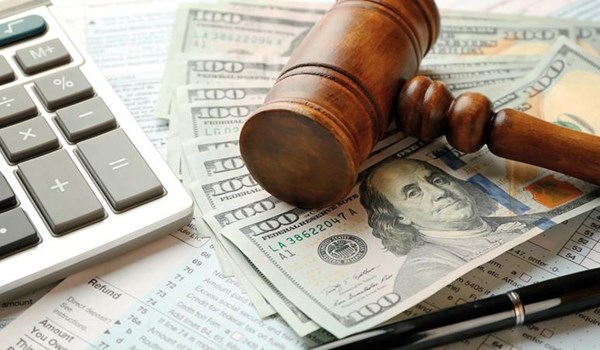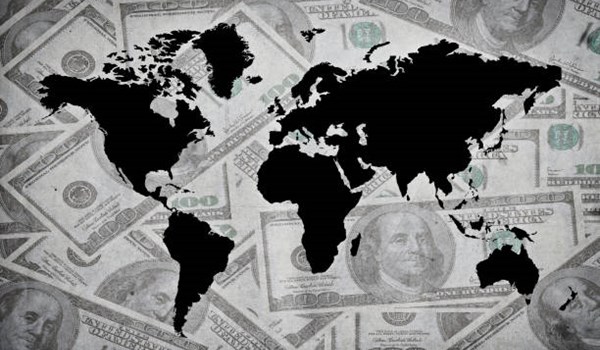Justin Trudeau’s international reputation once gave the impression that he was a progressive champion leading an earnest transformation towards a more egalitarian Canada. Looking back on his nearly ten years in power, however, his government’s record shows a significant gap between promise and reality.
The Liberals came to power in 2015 on a platform that included increasing taxes on the top one percent and cracking down on tax avoidance that disproportionately benefitted the wealthy. Yet, as we approach the end of Trudeau’s tenure, the richest one percent and richest 0.01 percent of Canadians collect a greater share of income than at the start. Lest we think that this is some kind of inevitability, the income share of the top one percent of Canadians actually fell during the Harper years.
The richest Canadians increased their after-tax income share during Trudeau’s government. Source: Statistics Canada Table 11-10-0055-01.
The figures shown above are based on detailed tax data that are only available through 2022. However, other less precise sources show that the income share of the top quintile continued to increase in 2023 and 2024.
Why has income inequality increased during the Trudeau years despite his government’s purported commitment to an equity-seeking mandate? The answer lies in an ideological commitment to incrementalism and compromise with big business in a time when bold, unapologetic action was needed.
Big promises, small actions
Trudeau’s promise to tackle tax avoidance resulted in actions that play around the edges of the issue without addressing the root causes. The government did modestly increase funding for the Canada Revenue Agency to go after wealthy tax cheats, improve Canada’s general anti-tax avoidance rule, and implement the Global Minimum Tax Act, however, nothing was done to address the biggest channel for tax evasion and avoidance: the bilateral tax treaties that Canada has with tax havens.
In 2023, five of the seven countries with the most Canadian direct investment were known tax havens, with a total of $424 billion parked there, largely to avoid taxes. This was more than double the value in these tax havens when Trudeau took office (representing a 63 percent increase in real terms).
After promising to review all federal tax expenditures that disproportionately benefit the top one percent, the Trudeau government ditched its plan and made piecemeal changes to a select few loopholes. Most notable was implementing a cap on the stock option deduction of $200,000 which the Parliamentary Budget Office estimated would raise just $22 million in the first three years. The Liberals sought to implement an increase to the capital gains inclusion rate, which would raise billions in revenue per year from large financial corporations and wealthy investors, but after separating it from the 2024 budget bill in order to use it as political leverage against the Conservatives, they failed to pass it last fall. With prorogation and the inevitable fall of the government once it returns, Trudeau’s most ambitious tax reform measures are likely to be dead on arrival.
Failing to address the financialization of housing and escalating wealth inequality
Canada’s worsening housing crisis will be one of Trudeau’s lasting legacies. His government’s National Housing Strategy has failed to mitigate housing insecurity, with 662,000 more households in core housing need now than there were in 2017. Instead of constructing non-market housing, the federal government relied on the private sector to create affordable housing without adequately defining affordability. After committing to review the tax-exempt status of real estate investment trusts and “curb excess profits” in housing in 2021, Ottawa made no changes to the tax treatment of REITs while profits in the real estate sector reached record levels. These failures have allowed corporate landlords to turn more and more housing into profitable financial assets, driving up the costs of homeownership and rendering renters increasingly insecure.
The Trudeau government did not implement a wealth tax or any other measure that would redistribute wealth at scale, ideas that were put forward by the NDP, numerous American politicians, and the G20 during Trudeau’s time in power. From 2016 to 2019, the wealthiest one percent of Canadians captured an additional 2.2 percent of Canada’s wealth. These trends have only accelerated since 2019. In 2019, Canada’s 10 wealthiest billionaire families had $94 billion. In 2024, they were worth $167 billion.
Not keeping corporate power in check
A fair society requires more than redistributing income through taxes and transfers; it is also about predistribution, or how incomes are allocated in the first place. Government policy can have a significant role in this by impacting the balance of power between workers and shareholders, as well as between renters and landlords. This equilibrium is essential in dictating how market incomes are distributed.
The Trudeau government failed to keep corporate and landlord power in check. The Liberals allowed large corporations to take government subsidies during the pandemic while raising prices and laying off workers. The government also failed to stop large corporations from exploiting tax loopholes, so the gap between what corporations are supposed to pay in income tax and what they actually pay increased. Trudeau also repeatedly legislated workers back to work, undermining their ability to bargain for higher wages. And it was his government’s failure to fund non-market housing that reduced choices in the rental market and allowed financialized landlords to significantly increase rents to extract more profits from renters.
So, while Trudeau portrayed himself as a progressive champion, his policies failed to meet the big challenges of our time. Tackling the affordability, housing, and climate crises head-on will require bold action—half-measures are not enough. Progressive parties must put forward bold solutions that can meet these challenges head-on. These could include a wealth tax, a windfall profits tax, and ending all tax treaties with tax havens. Without radical ideas that ensure economic progress is shared among all, Canadian progressives will meet the same fate as the Democrats south of the border.



